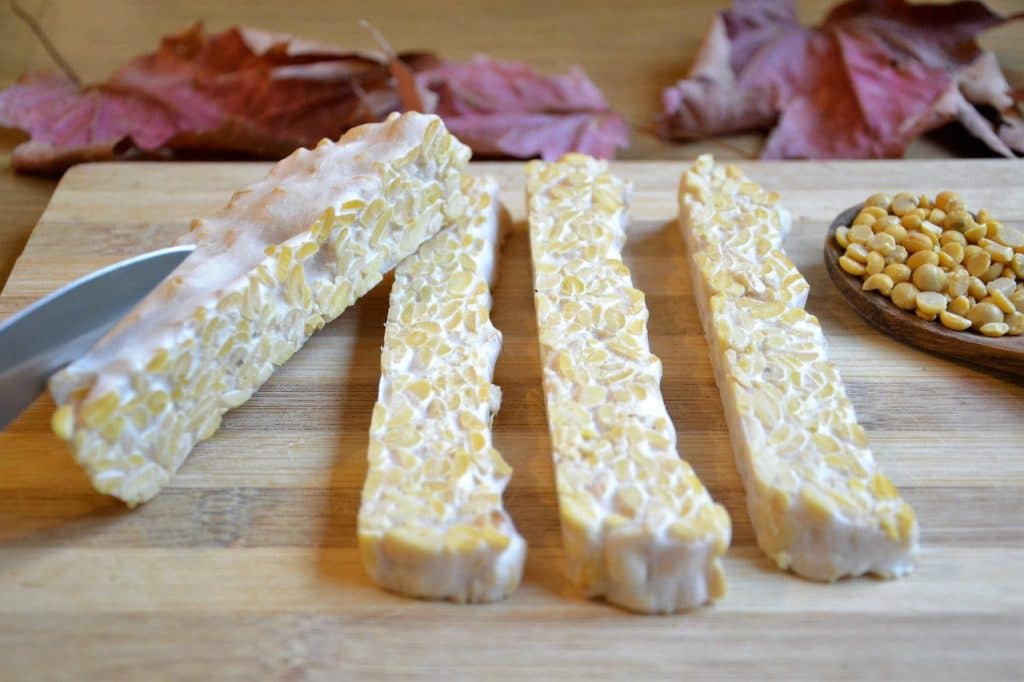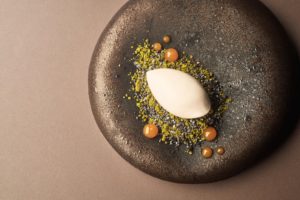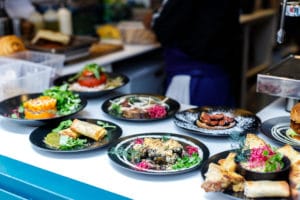Aurélie Notarianni and Adam Benslimane met at an event dedicated to the social and solidarity economy. Aurélie was working in marketing while Adam was in the process of rethinking his career after leaving his job.
Adam was particularly fond of tempeh, a product that Aurélie herself had discovered during a trip to Indonesia. With a common desire to limit the carbon footprint of our food, they turned to plant-based cuisine and chose tempeh to explore new culinary possibilities.
A story of tempeh
Born from an encounter between soybeans and a small mushroom called rhizopus, tempeh is a natural product that is little transformed. Its secret? Time. To obtain a block of tempeh, you have to let the fermentation take place.
The Kedelaï * adventure begins in November 2018. After two months of research and development, Aurélie and Adam arrive at a satisfactory product that they decide to market.
Kedelaï tempeh is purely French-made. Aurélie and Adam created their tempeh in the United Kitchens laboratories at the Château de Nanterre. A product made in a traditional way, with organically grown soya from the south-west region of France.
Nutritional qualities
Tempeh is a food with great nutritional qualities. The whole soybean reacts like whole-grain and therefore provides more protein (twice as much as tofu).
It is a source of fibre, iron and calcium, rich in magnesium, omega 3 and B vitamins.
In addition, due to fermentation, it guarantees better assimilation of nutrients while making it more digestible.
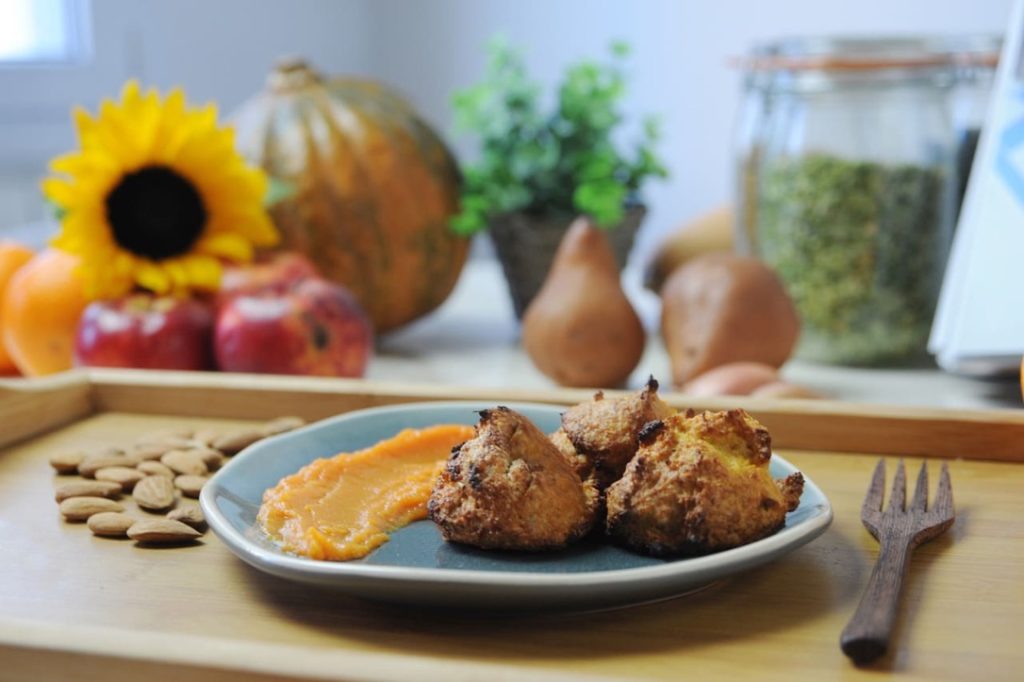
Recipes to invent
Tempeh captures flavours extremely well, making it a versatile ingredient that can be cooked in a variety of ways. Grilled, in strips, cubes or crumbled, integrated into marinades, stews, salads or pasta… For more elaborate recipes, we can imagine it in orange lacquer, a blanquette, a tiel setoise or style barbecue.
Tempeh has many strings to its bow and becomes a source of inspiration for Chefs. Recipes are also available on the Kedelaï website.
Tempeh is however little known in the catering and still not widely used, probably because of its lack of notoriety.
Kedelaï has already been able to collaborate with a few professionals, including the restaurant Le Faitout for a tempeh tartare, the Comptoir Veggie for a special tempeh bowl and the brEAThe restaurant for crispy tempeh. Restaurant owners are won over by this innovative product which calls for new ideas.
Aurélie and Adam are now waiting for ideas from Chefs for sweet recipes!
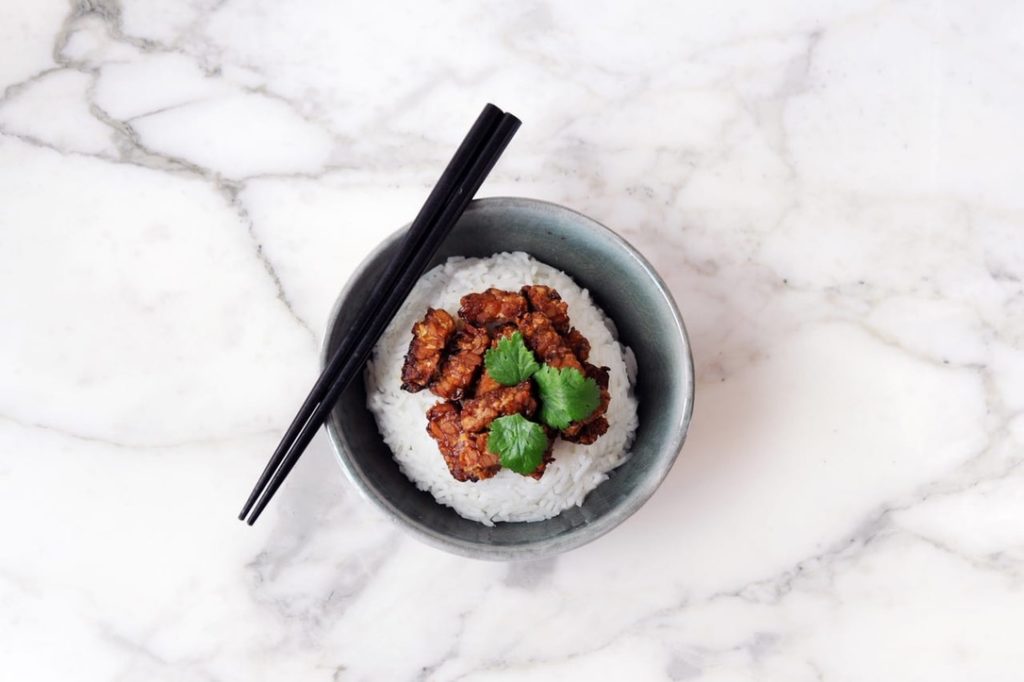
An eco-responsible product
Kedelaï is part of the social and solidarity economy. A voluntary choice that confirms the vision of the two partners. For Aurélie and Adam, the economy must be at the service of people and not the other way around.
It is anchored in this value that the brand develops an eco-responsible approach and wishes to reduce its environmental impact. This involves in particular a study of the packaging to minimize plastic and favour deliveries in reusable bins.
This also requires appropriate sourcing work, in conjunction with a cooperative in the Burgundy region, to encourage the production of more local soybeans, closer to their place of manufacture.
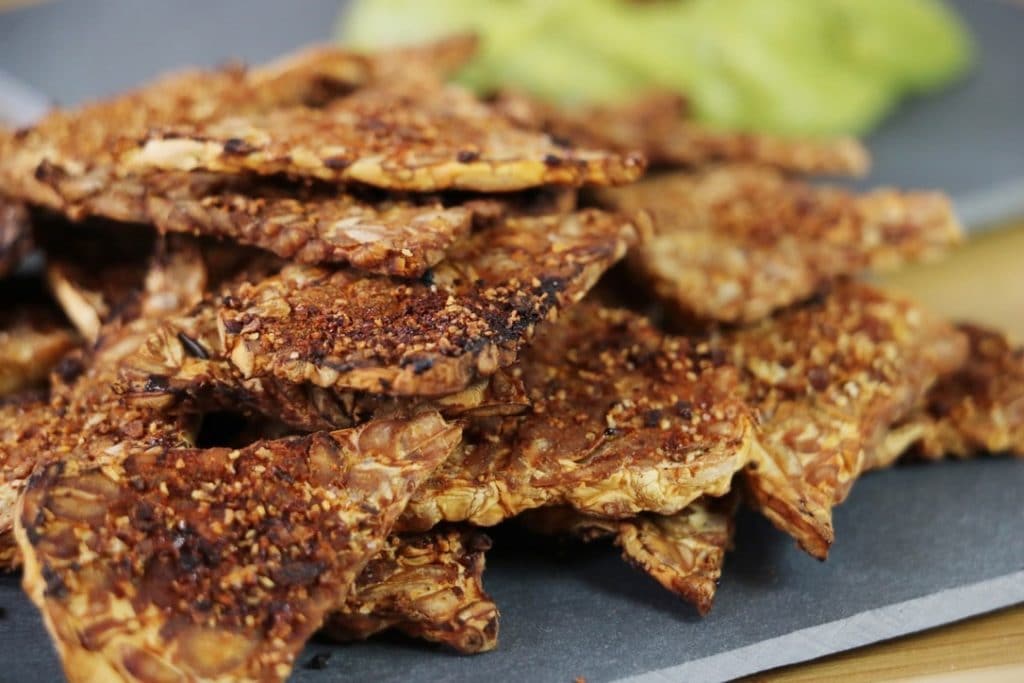
After fermented soybean tempeh, the two partners imagine they can create legume tempeh, a concept that does not yet exist and that could well work wonders in the kitchen. This would also allow the brand to develop the organic legume sector in France, which is essential for crop rotation and soil regeneration.
Extend the range of tempeh to other legumes, offering pre-cooked tempeh for blends, or making tailor-made tempeh… Kedelaï has plenty of ideas to help restaurateurs develop their plant-based offer, thanks to a powerful and surprising product.
Convinced? So let yourself tempeh!
Translated by Malvika Kathpal


